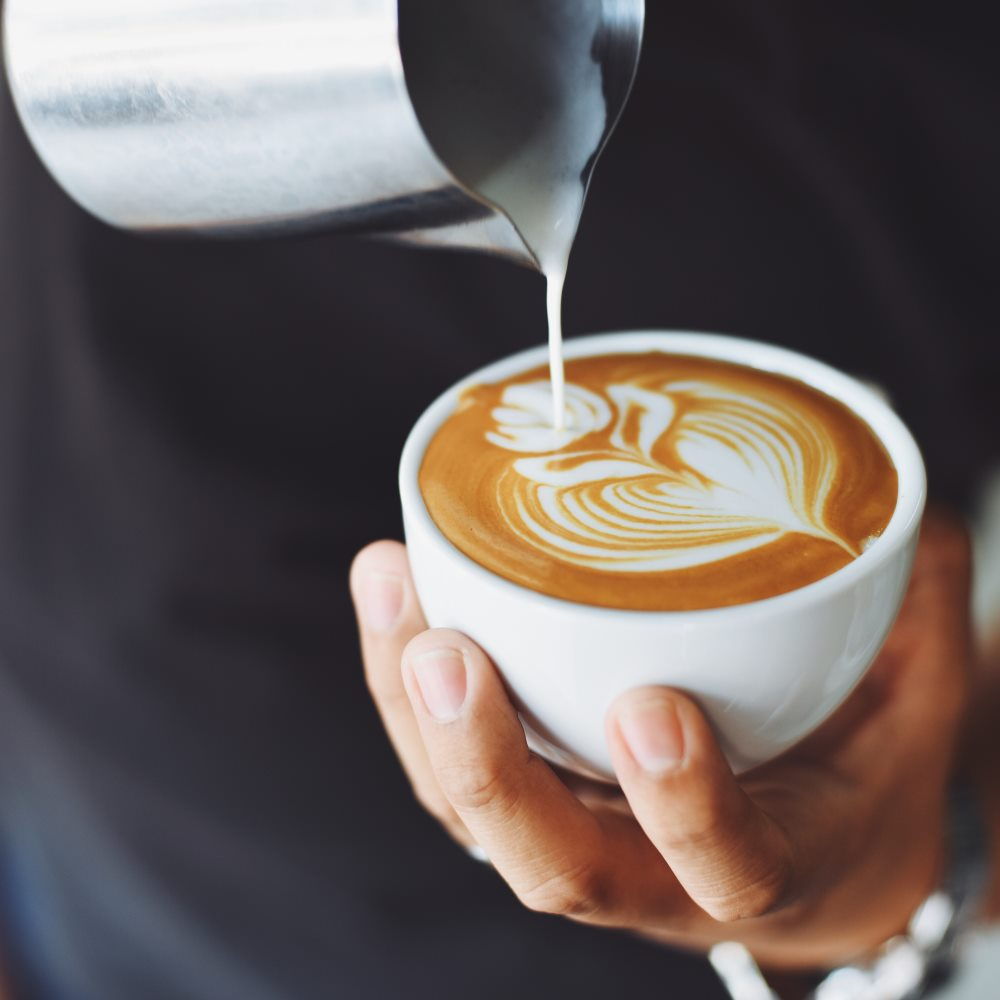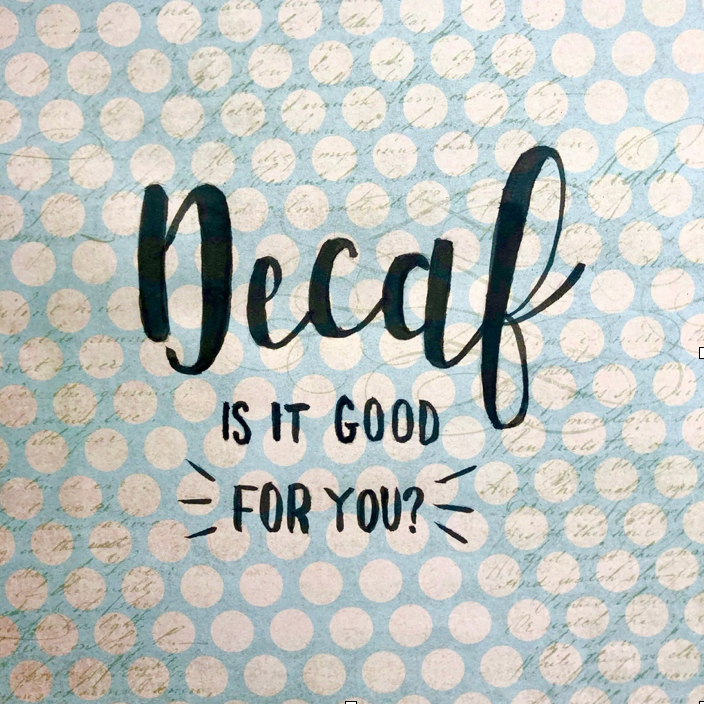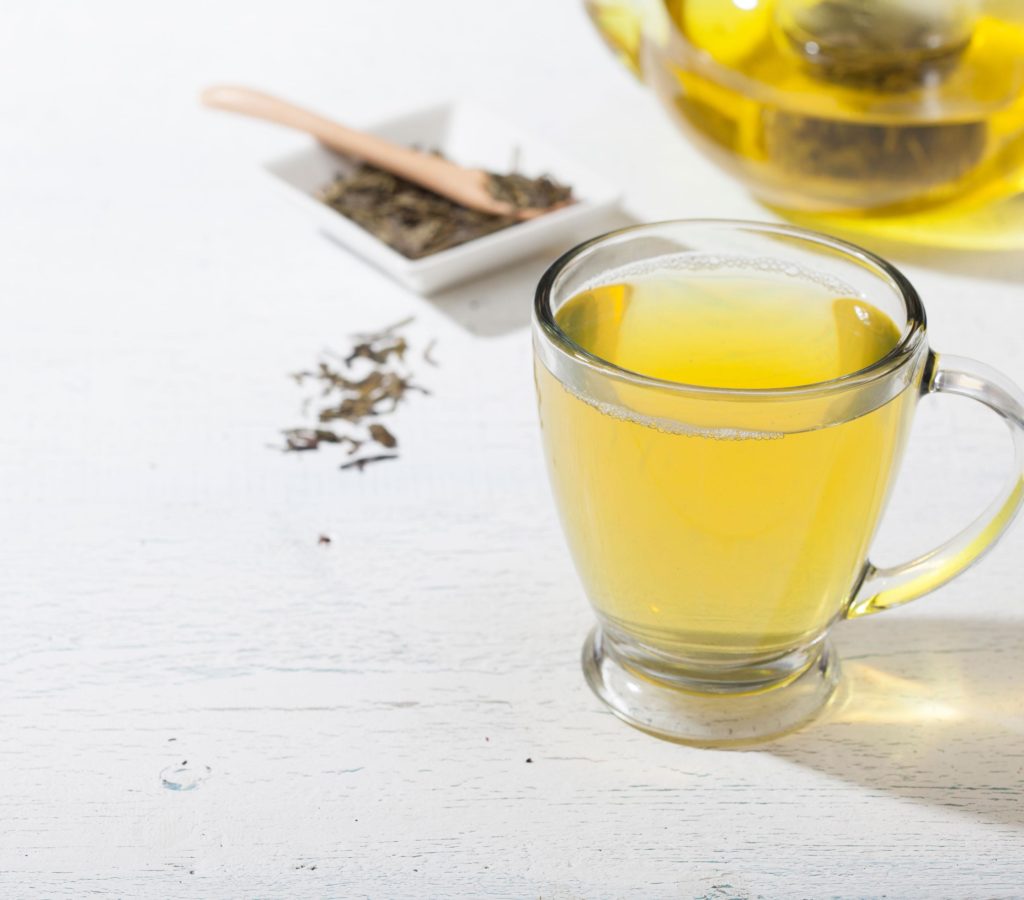Many thanks to Naomi Leppitt, dietitian, for this blog post. You can find her blog here.
☕️ What is caffeine and what does it do?
Caffeine is a natural stimulant, meaning it temporarily activates your brain and central nervous system. The effects of caffeine depend on how much you have, how sensitive you are, what medications you take and even time of day. For example, someone might be kept up all night with one cup of decaf coffee, whereas someone else might sleep soundly after a double espresso!

☕️ What contains caffeine?
- Coffee
- Tea (more depending on how long you leave the teabag in!)
- Green Tea and Oolong
- Cocoa and chocolate 🍫
Caffeine is also added to:
- Soft drinks like cola
- Energy drinks
- Smedicines (read the label!)
Caffeine can:
☕️ make you feel more awake and alert
☕️ improve learning, memory and mood
☕️ increase heart rate and blood pressure
☕️ cause intestinal discomfort
☕️ increase rate of urine production
☕️ be addictive
Feeling more awake sounds great, but some of those other effects might outweigh the positive effects for you. You don’t have to quit your morning coffee entirely, but you may find it helps to switch to decaf coffee.

☕️ How is coffee decaffeinated?
Either the beans are directly soaked in a solvent (methylene chloride or ethyl acetate), which keeps the flavour in, while removing most of the caffeine. (Don’t worry: they rinse the beans so none of the chemical remains in what you’re drinking!) Or the beans are soaked first, and that water is treated with the solvent to take out the caffeine, so the solvent never touches the beans. Sometimes solvent isn’t used at all, just water or carbon dioxide. Whichever way is chosen, there’s no evidence to say one method is safer than the other.
☕️ What about tea?
Both green and black tea come from the plant Camellia sinensis 🌿, and the difference is that black tea is fermented. Black tea contains more caffeine than green tea, unless you’re more of an Earl Grey drinker. Matcha tea contains more caffeine than regular green tea (because it’s ground, so you consume the whole leaf). Overall tea has less caffeine than coffee, so it won’t stimulate your heart as much.

Green teas contain a substance (L-theanine) that has been shown to reduce anxiety and have a relaxing effect without any drowsiness, so people often find they get the benefit of the pick-me-up without the jitters. Not only that, but green tea contains anti-inflammatory catechins, which are being shown in research to have anti-cancer properties.
Tea can be decaffeinated with carbon dioxide or just hot water (for green tea), and these processes keep in most of the catechins, so you won’t lose out on the positive effects. Tea also can be decaffeinated with solvents, but again, there won’t be any solvents in what you’re drinking.
☕️ Are decaffeinated drinks caffeine-free?
Even after decaffeination small amounts of caffeine remain (usually 1-2%, but sometimes up to 20%!). Even though it’s a small amount, it’s still enough that some people may still feel the effects.
And, even if you’re having decaffeinated drinks, be mindful that over the day, those small amounts of caffeine add up to the equivalent of a caffeinated drink.
☕️ So should I switch to decaf?
You may benefit from switching if you suffer with IBS, incontinence or anxiety. And if you’re pregnant, 🤰🏼 you should limit caffeinated drinks to 2-3 cups per day (as lots of caffeine has health risks to the baby or could result in miscarriage), so switching to decaf means you get the flavour without the risk!
Note that if you tend to drink a lot of coffee or tea, and decide to switch to decaf, you may feel withdrawal symptoms such as headaches 🤕, feeling drowsy 😴 or not being able to concentrate as well 🧠.
If you have an anxiety disorder, high blood pressure, an irregular heartbeat, or kidney disease, you may have been advised to cut out caffeine, but, be aware that switching to decaf drinks won’t mean you’re entirely caffeine-free! Alternatively, you could substitute with a non-caffeinated drink such as herbal or fruit tea, hot sugar-free squash or malted drinks.
References:
Butt, M. S. et al. (2015) ‘Green Tea and Anticancer Perspectives: Updates from Last Decade’, Critical Reviews in Food Science and Nutrition, 55(6), pp. 792–805. doi: 10.1080/10408398.2012.680205.
Decaffeination 101: Four Ways to Decaffeinate Coffee. Available at: http://coffeeconfidential.org/health/decaffeination/.
Green Tea vs. Black Tea: Which One is Healthier? Available at: https://www.cupandleaf.com/blog/green-tea-vs-black-tea (Accessed: 20 June 2019).
Kimura, K. et al. (2007) ‘l-Theanine reduces psychological and physiological stress responses’, Biological Psychology. Elsevier, 74(1), pp. 39–45. doi: 10.1016/J.BIOPSYCHO.2006.06.006.
Liang, H. et al. (2007) ‘Decaffeination of fresh green tea leaf (Camellia sinensis) by hot water treatment’, Food Chemistry. Elsevier, 101(4), pp. 1451–1456. doi: 10.1016/J.FOODCHEM.2006.03.054.
Lieberman, H. R. et al. (2002) ‘Effects of caffeine, sleep loss, and stress on cognitive performance and mood during U.S. Navy SEAL training’, Psychopharmacology, 164(3), pp. 250–261. doi: 10.1007/s00213-002-1217-9.
McCusker, R. R. et al. (2006) ‘Caffeine content of decaffeinated coffee’, Journal of Analytical Toxicology, 30(8), pp. 611–613. doi: 10.1093/jat/30.8.611.
NHS. Water, drinks and your health. Available at: https://www.nhs.uk/live-well/eat-well/water-drinks-nutrition/.
Ohishi, T. et al. (2016) ‘Anti-inflammatory Action of Green Tea’, Anti-Inflammatory & Anti-Allergy Agents in Medicinal Chemistry, 15(2), pp. 74–90. doi: 10.2174/1871523015666160915154443.
Ramalakshmi, K. and Raghavan, B. (2005) ‘Caffeine in Coffee: Its Removal. Why and How?’, Critical Reviews in Food Science and Nutrition, 39(5), pp. 441–456. doi: 10.1080/10408699991279231.
Tea!!! I also love both but I couldn’t live without tea. I try to stay away from caffeine so that makes my options slightly more limited, and tea has so many more choices for decaf than coffee does (I also prefer iced coffee over hot). Teavana teas are my favorite. I love anything fruity, decaf green tea, and lemon black tea. There are very few teas that I dislike other than chai!